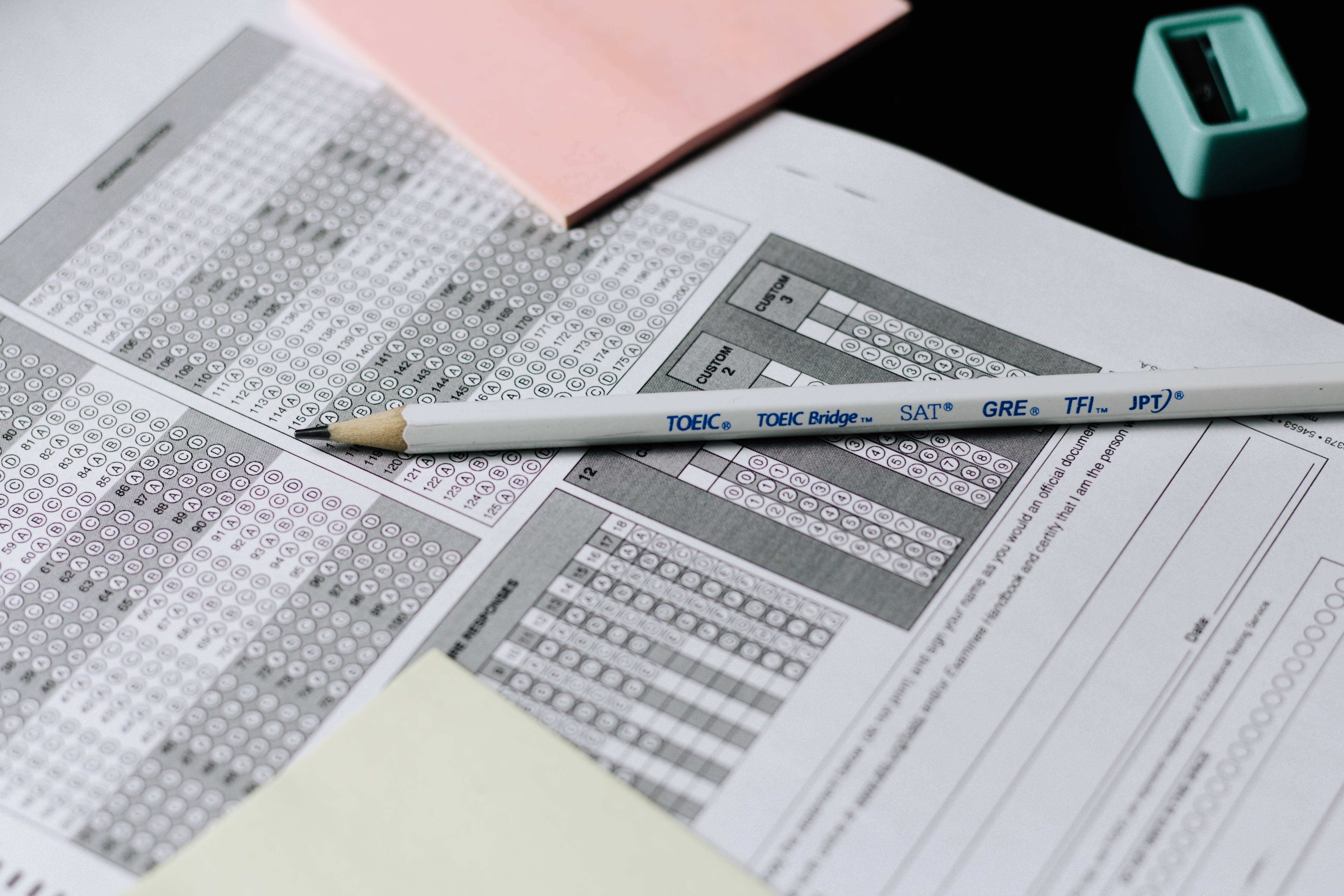Adrianne is a college admissions consultant and TV/film director, producer, writer, and actress currently based in LA. She uses her experience in multiple disciplines to help students achieve their personal and academic goals.
Recent reporting has indicated that ACT scores have severely declined for the class of 2023, reaching the lowest scores since 1991. What’s driving this trend? Read on to find out.

Standardized tests like the ACT — also known as “American College Testing” — have long been considered an essential component of the college admissions process, offering universities a relatively uniform method of assessing a student’s preparedness for college. However, amongst a slew of criticism during the pandemic about the test’s measuring of academic readiness being biased against low-income students, a growing number of colleges and universities have opted for test-optional policies during the college admissions process.
But in recent years, there has been a noticeable drop in ACT scores among high schoolers, especially compared to pre-pandemic levels. The New York Times reported that “the average composite score on the exam was 19.5 out of 36, the lowest score since 1991.” This phenomenon has left educators, students, and parents concerned about the underlying causes and potential consequences, particularly in terms of college readiness among high school students and the ability of objective test scores to measure that readiness. For instance, many are wondering: is this something that can be remedied at the individual school level, or does the problem with standardized admissions tests need to be addressed at a national policy level?
“The hard truth is that we are not doing enough to ensure that graduates are truly ready for postsecondary success in college and career,” said Janet Godwin, chief executive officer for the nonprofit ACT in an interview with NPR.
Read on as we explore the reasons behind this phenomenon and how it may change educators’ and college admissions offices’ perspectives on the importance of standardized testing going forward.

Table of Contents
What is the ACT?
The ACT, or American College Testing, is a standardized test commonly used for college admissions in the United States. It is designed to assess high school students’ readiness for college-level coursework and historically has been used by many colleges and universities as one of the factors in their admissions decisions. The ACT exam measures college readiness benchmarks by testing a student’s knowledge and skills in English, math, reading, and science, with an optional writing (essay) section. Each of these sections is scored on a scale of 1 to 36, and the scores are averaged to produce an overall composite score.
In recent years, the ACT has faced some challenges, including controversies related to test security and an increasingly competitive market with the SAT. As a result, the popularity of the ACT has waned, and more colleges have moved toward test-optional policies, as mentioned above.
The Possible Reasons for the Recent Decline in ACT Scores
Shift in Test-Optional Policies
One of the significant reasons behind the recent drop in ACT scores is the widespread adoption of test-optional policies by colleges and universities. In response to the COVID-19 pandemic, many institutions temporarily suspended standardized test requirements for admission.
This move allowed students to apply without submitting their ACT or SAT scores, leading some to believe that there was no longer a need to prepare rigorously for these exams. As a result, some high schoolers may not have put in the same effort to achieve high ACT scores, leading to declines in the average scores reported. But while there may be a shift away from the emphasis on these standardized tests’ benchmarks for success in the college admissions process, it’s still highly recommended that students prepare and take standardized tests as it can only benefit them if they perform well (and will hurt their chances less than previously because of these changes).
If you want to learn more about the reasoning behind test-optional admission policies and how they may impact your college application, check out our blog post on the subject here.
Unequal Access to Test Prep Resources
Another contributing factor is the unequal access to test preparation resources. Many high-scoring students receive extensive test preparation, which may include private tutoring, test prep courses, or access to expensive study materials.
However, students from disadvantaged backgrounds often lack the financial resources and support to access these opportunities, putting them at a disadvantage when taking the ACT. This inequality in access to test preparation resources can result in lower average scores, so it wouldn’t necessarily reflect a lack of student preparedness or a low probability of success in college — just a lack of access to expensive test prep.
Changes in High School Curriculum
High schools across the country have been adapting their curricula to meet the demands of a rapidly changing world. With a shift towards project-based learning, STEM (Science, Technology, Engineering, and Mathematics) education, and a focus on critical thinking and innovative problem-solving skills, students may not be receiving the same level of instruction in traditional test-taking skills.
As a result, students may find it more challenging to excel in standardized tests like the ACT, which often prioritize memorization and formulaic problem-solving techniques.
Stress and Mental Health Concerns
The pressure to perform well on standardized tests can have a significant impact on students’ mental health. The high-stakes nature of the ACT, coupled with the uncertainty surrounding college admissions, can contribute to increased stress and anxiety among high schoolers. This stress can, in turn, affect their test performance and lead to lower standardized test scores. However, this has already been the case, so it’s hard to control for this factor.
If you want to learn more about managing your mental health, check out our blog post on the topic here.
Pandemic-Related Disruptions
The COVID-19 pandemic disrupted the education system, leading to widespread school closures and a shift to online learning for millions of students. These disruptions may have affected students’ ability to prepare effectively for standardized tests like the ACT and impacted the college admissions process in the long term. The transition to online learning presented new challenges, including issues related to internet access, technology, and distractions, all of which may have hindered students’ test preparation efforts.
.

.
Conclusion
The recent drop in ACT scores among high school seniors can be attributed to a combination of factors, including the shift to test-optional policies, unequal access to test prep resources, changes in high school curriculum, stress and mental health concerns, and pandemic-related disruptions.
While these factors have contributed to lower average scores, it’s important to remember that the decline in ACT scores may not necessarily reflect a decline in students’ academic abilities or probability of success in the future. As the educational landscape continues to evolve, it’s crucial for educators and policymakers to consider these factors and work towards fairer and more equitable ways of assessing students’ preparedness for higher education.
Need help on your own college application or with standardized test prep? We’ve got you covered — set up a free consultation with one of our experienced admissions counselors today!



